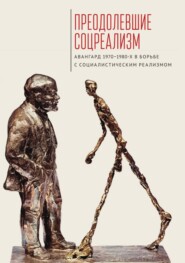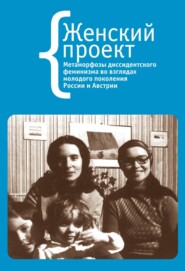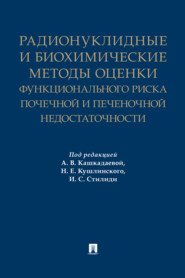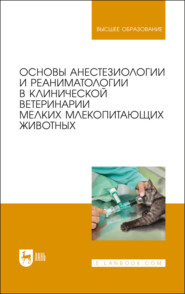По всем вопросам обращайтесь на: info@litportal.ru
(©) 2003-2024.
✖
The German Classics of the Nineteenth and Twentieth Centuries, Volume 02
Настройки чтения
Размер шрифта
Высота строк
Поля
CHAPTER VII
Now that Charlotte was occupied with the Captain, it was a natural consequence that Edward should attach himself more to Ottilie. Independently of this, indeed, for some time past he had begun to feel a silent kind of attraction toward her. Obliging and attentive she was to every one, but his self-love whispered that toward him she was particularly so. She had observed his little fancies about his food. She knew exactly what things he liked, and the way in which he liked them to be prepared; the quantity of sugar which he liked in his tea; and so on. Moreover, she was particularly careful to prevent draughts, about which he was excessively sensitive, and, indeed, about which, with his wife, who could never have air enough, he was often at variance. So, too, she had come to know about fruit-gardens and flower-gardens; whatever he liked, it was her constant effort to procure for him, and to keep away whatever annoyed him; so that very soon she grew indispensable to him—she became like his guardian angel, and he felt it keenly whenever she was absent. Besides all this, too, she appeared to grow more open and conversible as soon as they were alone together.
Edward, as he advanced in life, had retained something childish about himself, which corresponded singularly well with the youthfulness of Ottilie. They liked talking of early times, when they had first seen each other; and these reminiscences led them up to the first epoch of Edward's affection for Charlotte. Ottilie declared that she remembered them both as the handsomest pair about the court; and when Edward would question the possibility of this, when she must have been so exceedingly young, she insisted that she recollected one particular incident as clearly as possible. He had come into the room where her aunt was, and she had hid her face in Charlotte's lap—not from fear, but from a childish surprise. She might have added, because he had made so strong an impression upon her—because she had liked him so much.
While they were occupied in this way, much of the business which the two friends had undertaken together had come to a standstill; so that they found it necessary to inspect how things were going on—to work up a few designs and get letters written. For this purpose, they betook themselves to their office, where they found their old copyist at his desk. They set themselves to their work, and soon gave the old man enough to do, without observing that they were laying many things on his shoulders which at other times they had always done for themselves. At the same time, the first design the Captain tried would not answer, and Edward was as unsuccessful with his first letter. They fretted for a while, planning and erasing, till at last Edward, who was getting on the worst, asked what o'clock it was. And then it appeared that the Captain had forgotten, for the first time for many years, to wind up his chronometer; and they seemed, if not to feel, at least to have a dim perception, that time was beginning to be indifferent to them.
In the meanwhile, as the gentlemen were thus rather slackening in their energy, the activity of the ladies increased all the more. The every-day life of a family, which is composed of given persons, and is shaped out of necessary circumstances, may easily receive into itself an extraordinary affection, an incipient passion—may receive it into itself as into a vessel; and a long time may elapse before the new ingredient produces a visible effervescence, and runs foaming over the edge.
With our friends, the feelings which were mutually arising had the most agreeable effects. Their dispositions opened out, and a general goodwill arose out of the several individual affections. Every member of the party was happy; and they each shared their happiness with the rest.
Such a temper elevates the spirit, while it enlarges the heart, and everything which, under the influence of it, people do and undertake, has a tendency toward the illimitable. The friends could not remain any more shut up at home; their walks extended themselves further and further. Edward would hurry on before with Ottilie, to choose the path or pioneer the way; and the Captain and Charlotte would follow quietly on the track of their more hasty precursors, talking on some grave subject, or delighting themselves with some spot they had newly discovered, or some unexpected natural beauty.
One day their walk led them down from the gate at the right wing of the castle, in the direction of the hotel, and thence over the bridge toward the ponds, along the sides of which they proceeded as far as it was generally thought possible to follow the water; thickly wooded hills sloped directly up from the edge, and beyond these a wall of steep rocks, making further progress difficult, if not impossible. But Edward, whose hunting experience had made him thoroughly familiar with the spot, pushed forward along an overgrown path with Ottilie, knowing well that the old mill could not be far off, which was somewhere in the middle of the rocks there. The path was so little frequented, that they soon lost it; and for a short time they were wandering among mossy stones and thickets; it was not for long, however, the noise of the water-wheel speedily telling them that the place which they were looking for was close at hand. Stepping forward on a point of rock, they saw the strange old, dark, wooden building in the hollow before them, quite shadowed over with precipitous crags and huge trees. They determined directly to climb down amidst the moss and the blocks of stone. Edward led the way; and when he looked back and saw Ottilie following, stepping lightly, without fear or nervousness, from stone to stone, so beautifully balancing herself, he fancied he was looking at some celestial creature floating above him; while if, as she often did, she caught the hand which in some difficult spot he would offer her, or if she supported herself on his shoulder, then he was left in no doubt that it was a very exquisite human creature who touched him. He almost wished that she might slip or stumble, that he might catch her in his arms and press her to his heart. This, however, he would under no circumstances have done, for more than one reason. He was afraid to wound her, and he was afraid to do her some bodily injury.
What the meaning of this could be, we shall immediately learn. When they had got down, and were seated opposite each other at a table under the trees, and when the miller's wife had gone for milk, and the miller, who had come out to them, was sent to meet Charlotte and the Captain, Edward, with a little embarrassment, began to speak:
"I have a request to make, dear Ottilie; you will forgive me for asking it, if you will not grant it. You make no secret (I am sure you need not make any), that you wear a miniature under your dress against your breast. It is the picture of your noble father. You could hardly have known him; but in every sense he deserves a place by your heart. Only, forgive me, the picture is exceedingly large, and the metal frame and the glass, if you take up a child in your arms, if you are carrying anything, if the carriage swings violently, if we are pushing through bushes, or just now, as we were coming down these rocks—cause me a thousand anxieties for you. Any unforeseen blow, a fall, a touch, may be fatally injurious to you; and I am terrified at the possibility of it. For my sake do this: put away the picture, not out of your affections, not out of your room; let it have the brightest, the holiest place which you can give it; only do not wear upon your breast a thing, the presence of which seems to me, perhaps from an extravagant anxiety, so dangerous."
Ottilie said nothing, and while he was speaking she kept her eyes fixed straight before her; then, without hesitation and without haste, with a look turned more toward heaven than on Edward, she unclasped the chain, drew out the picture, and pressed it against her forehead, and then reached it over to her friend, with the words:
"Do you keep it for me till we come home; I cannot give you a better proof how deeply I thank you for your affectionate care."
He did not venture to press the picture to his lips; but he caught her hand and raised it to his eyes. They were, perhaps, two of the most beautiful hands which had ever been clasped together. He felt as if a stone had fallen from his heart, as if a partition-wall had been thrown down between him and Ottilie.
Under the miller's guidance, Charlotte and the Captain came down by an easier path, and now joined them. There was the meeting, and a happy talk, and then they took some refreshments. They would not return by the same way as they came; and Edward struck into a rocky path on the other side of the stream, from which the ponds were again to be seen. They made their way along it, with some effort, and then had to cross a variety of wood and copse—getting glimpses, on the land side, of a number of villages and manor-houses, with their green lawns and fruit-gardens; while very near them, and sweetly situated on a rising ground, a farm lay in the middle of the wood. From a gentle ascent, they had a view, before and behind, which showed them the richness of the country to the greatest advantage; and then, entering a grove of trees, they found themselves, on again emerging from it, on the rock opposite the castle.
They came upon it rather unexpectedly, and were of course delighted. They had made the circuit of a little world; they were standing on the spot where the new building was to be erected, and were looking again at the windows of their home.
They went down to the summer-house, and sat all four in it for the first time together; nothing was more natural than that with one voice it should be proposed to have the way they had been that day, and which, as it was, had taken them much time and trouble, properly laid out and gravelled, so that people might loiter along it at their leisure. They each said what they thought; and they reckoned up that the circuit, over which they had taken many hours, might be traveled easily with a good road all the way round to the castle, in a single one.
Already a plan was being suggested for making the distance shorter, and adding a fresh beauty to the landscape, by throwing a bridge across the stream, below the mill, where it ran into the lake; when Charlotte brought their inventive imagination somewhat to a standstill, by putting them in mind of the expense which such an undertaking would involve.
"There are ways of meeting that too," replied Edward; "we have only to dispose of that farm in the forest which is so pleasantly situated, and which brings in so little in the way of rent: the sum which will be set free will more than cover what we shall require, and thus, having gained an invaluable walk, we shall receive the interest of well-expended capital in substantial enjoyment—instead of, as now, in the summing up at the end of the year, vexing and fretting ourselves over the pitiful little income which is returned for it."
Even Charlotte, with all her prudence, had little to urge against this. There had been, indeed, a previous intention of selling the farm. The Captain was ready immediately with a plan for breaking up the ground into small portions among the peasantry of the forest. Edward, however, had a simpler and shorter way of managing it. His present steward had already proposed to take it off his hands—he was to pay for it by instalments—and so, gradually, as the money came in, they would get their work forward from point to point.
So reasonable and prudent a scheme was sure of universal approbation, and already, in prospect, they began to see their new walk winding along its way, and to imagine the many beautiful views and charming spots which they hoped to discover in its neighborhood.
To bring it all before themselves with greater fulness of detail, in the evening they produced the new chart. With the help of this they went over again the way that they had come, and found various places where the walk might take a rather different direction with advantage. Their other scheme was now once more talked through, and connected with the fresh design. The site for the new house in the park, opposite the castle, was a second time examined into and approved, and fixed upon for the termination of the intended circuit.
Ottilie had said nothing all this time. At length Edward pushed the chart, which had hitherto been lying before Charlotte, across to her, begging her to give her opinion; she still hesitated for a moment. Edward in his gentlest way again pressed her to let them know what she thought—nothing had as yet been settled—it was all as yet in embryo.
"I would have the house built here," she said, as she pointed with her finger to the highest point of the slope on the hill. "It is true you cannot see the castle from thence, for it is hidden by the wood; but for that very reason you find yourself in another quite new world; you lose village and houses and all at the same time. The view of the ponds with the mill, and the hills and mountains in the distance, is singularly beautiful—I have often observed it when I have been there."
"She is right," Edward cried; "how could we have overlooked it. This is what you mean, Ottilie, is it not?" He took a lead pencil, and drew a great black rectangular figure on the summit of the hill.
It went through the Captain's soul to see his carefully and clearly-drawn chart disfigured in such a way. He collected himself, however, after a slight expression of his disapproval and went into the idea. "Ottilie is right," he said; "we are ready enough to walk any distance to drink tea or eat fish, because they would not have tasted as well at home—we require change of scene and change of objects. Your ancestors showed their judgment in the spot which they chose for the castle; for it is sheltered from the wind, with the conveniences of life close at hand. A place, on the contrary, which is more for pleasure parties than for a regular residence, may be very well yonder there, and in the fair time of year the most agreeable hours may be spent there."
The more they talked it over, the more conclusive was their judgment in favor of Ottilie; and Edward could not conceal his triumph that the thought had been hers. He was as proud as if he had hit upon it himself.
CHAPTER VIII
Early the following morning the Captain examined the spot: he first threw off a sketch of what should be done, and afterward, when the thing had been more completely decided on, he made a complete design, with accurate calculations and measurements. It cost him a good deal of labor, and the business connected with the sale of the farm had to be gone into, so that both the gentlemen now found a fresh impulse to activity.
The Captain made Edward observe that it would be proper, indeed that it would be a kind of duty, to celebrate Charlotte's birthday with laying the foundation-stone. Not much was wanted to overcome Edward's disinclination for such festivities—for he quickly recollected that a little later Ottilie's birthday would follow, and that he could have a magnificent celebration for that.
Charlotte, to whom all this work and what it would involve was a subject for much serious and almost anxious thought, busied herself in carefully going through the time and outlay which it was calculated would be expended on it. During the day they rarely saw each other, so that the evening meeting was looked forward to with all the more anxiety.
Ottilie meantime was complete mistress of the household—and how could it be otherwise, with her quick methodical rays of working? Indeed, her whole mode of thought was suited better to home life than to the world, and to a more free existence. Edward soon observed that she only walked about with them out of a desire to please; that when she stayed out late with them in the evening it was because she thought it a sort of social duty, and that she would often find a pretext in some household matter for going in again—consequently he soon managed so to arrange the walks which they took together, that they should be at home before sunset; and he began again, what he had long left off, to read aloud poetry—particularly such as had for its subject the expression of a pure but passionate love.
They ordinarily sat in the evening in the same places round a small table—Charlotte on the sofa, Ottilie on a chair opposite to her, and the gentlemen on each side. Ottilie's place was on Edward's right, the side where he put the candle when he was reading—at such times she would draw her chair a little nearer to look over him, for Ottilie also trusted her own eyes better than another person's lips, and Edward would then always make a move toward her, that it might be as easy as possible for her—indeed he would frequently make longer stops than necessary, that he might not turn over before she had got to the bottom of the page.
Charlotte and the Captain observed this, and exchanged many a quiet smile at it; but they were both taken by surprise at another symptom, in which Ottilie's latent feeling accidentally displayed itself.
One evening, which had been partly spoilt for them by a tedious visit, Edward proposed that they should not separate so early—he felt inclined for music—he would take his flute, which he had not done for many days past. Charlotte looked for the sonatas which they generally played together, and they were not to be found. Ottilie, with some hesitation, said that they were in her room—she had taken them there to copy them.
"And you can, you will, accompany me on the piano?" cried Edward, his eyes sparkling with pleasure. "I think perhaps I can," Ottilie answered. She brought the music and sat down to the instrument. The others listened, and were sufficiently surprised to hear how perfectly Ottilie had taught herself the piece—but far more surprised were they at the way in which she contrived to adapt herself to Edward's style of playing. Adapt herself, is not the right expression—Charlotte's skill and power enabled her, in order to please her husband, to keep up with him when he went too fast, and hold in for him if he hesitated; but Ottilie, who had several times heard them play the sonata together, seemed to have learnt it according to the idea in which they accompanied each other—she had so completely made his defects her own, that a kind of living whole resulted from it, which did not move indeed according to exact rule, but the effect of which was in the highest degree pleasant and delightful. The composer himself would have been pleased to hear his work disfigured in a manner so charming.
Charlotte and the Captain watched this strange unexpected occurrence in silence, with the kind of feeling with which we often observe the actions of children—unable exactly to approve of them, from the serious consequences which may follow, and yet without being able to find fault, perhaps with a kind of envy. For, indeed, the regard of these two for one another was growing also, as well as that of the others—and it was perhaps only the more perilous because they were both stronger, more certain of themselves, and better able to restrain themselves.
The Captain had already begun to feel that a habit which he could not resist was threatening to bind him to Charlotte. He forced himself to stay away at the hour when she commonly used to be at the works; by getting up very early in the morning he contrived to finish there whatever he had to do, and went back to the castle to his work in his own room. The first day or two Charlotte thought it was an accident—she looked for him in every place where she thought he could possibly be. Then she thought she understood him—and admired him all the more.
Avoiding, as the Captain now did, being alone with Charlotte, the more industriously did he labor to hurry forward the preparations for keeping her rapidly-approaching birthday with all splendor. While he was bringing up the new road from below behind the village, he made the men, under pretence that he wanted stones, begin working at the top as well, and work down, to meet the others; and he had calculated his arrangements so that the two should exactly meet on the eve of the day. The excavations for the new house were already done; the rock was blown away with gunpowder; and a fair foundation-stone had been hewn, with a hollow chamber, and a flat slab adjusted to cover it.
This outward activity, these little mysterious purposes of friendship, prompted by feelings which more or less they were obliged to repress, rather prevented the little party when together from being as lively as usual. Edward, who felt that there was a sort of void, one evening called upon the Captain to fetch his violin—Charlotte should play the piano, and he should accompany her. The Captain was unable to refuse the general request, and they executed together one of the most difficult pieces of music with an ease, and freedom, and feeling, which could not but afford themselves, and the two who were listening to them, the greatest delight. They promised themselves a frequent repetition of it, as well as further practice together. "They do it better than we, Ottilie," said Edward; "we will admire them—but we can enjoy ourselves together too."
CHAPTER IX
The birthday was come, and everything was ready. The wall was all complete which protected the raised village road against the water, and so was the walk; passing the church, for a short time it followed the path which had been laid out by Charlotte, and then winding upward among the rocks, inclined first under the summer-house to the right, and then, after a wide sweep, passed back above it to the right again, and so by degrees out on to the summit. A large party had assembled for the occasion. They went first to church, where they found the whole congregation assembled in their holiday dresses. After service, they filed out in order; first the boys, then the young men, then the old; after them came the party from the castle, with their visitors and retinue; and the village maidens, young girls, and women, brought up the rear.
At the turn of the walk, a raised stone seat had been contrived, where the Captain made Charlotte and the visitors stop and rest. From here they could see over the whole distance from the beginning to the end—the troops of men who had gone up before them, the file of women following, and now drawing up to where they were. It was lovely weather, and the whole effect was singularly beautiful. Charlotte was taken by surprise, she was touched, and she pressed the Captain's hand warmly.
They followed the crowd who had slowly ascended, and were now forming a circle round the spot where the future house was to stand. The lord of the castle, his family, and the principal strangers were now invited to descend into the vault, where the foundation-stone, supported on one side, lay ready to be let down. A well-dressed mason, a trowel in one hand and a hammer in the other, came forward, and with much grace spoke an address in verse, of which in prose we can give but an imperfect rendering.
"Three things," he began, "are to be looked to in a building—that it stand on the right spot; that it be securely founded; that it be successfully executed. The first is the business of the master of the house—his and his only. As in the city the prince and the council alone determine where a building shall be, so in the country it is the right of the lord of the soil that he shall say, 'Here my dwelling shall stand; here, and nowhere else.'"
Edward and Ottilie were standing opposite one another, as these words were spoken; but they did not venture to look up and exchange glances.
"To the third, the execution, there is neither art nor handicraft which must not in some way contribute. But the second, the founding, is the province of the mason; and, boldly to speak it out, it is the head and front of all the undertaking—a solemn thing it is—and our bidding you descend hither is full of meaning. You are celebrating your Festival in the deep of the earth. Here within this small hollow spot, you show us the honor of appearing as witnesses of our mysterious craft. Presently we shall lower down this carefully-hewn stone into its place; and soon these earth-walls, now ornamented with fair and worthy persons, will be no more accessible—but will be closed in forever!
"This foundation-stone, which with its angles typifies the just angles of the building, with the sharpness of its molding, the regularity of it, and with the truth of its lines to the horizontal and perpendicular, the uprightness and equal height of all the walls, we might now without more ado let down—it would rest in its place with its own weight. But even here there shall not fail of lime and means to bind it. For as human beings who may be well inclined to each other by nature, yet hold more firmly together when the law cements them, so are stones also, whose forms may already fit together, united far better by these binding forces. It is not seemly to be idle among the working, and here you will not refuse to be our fellow-laborer;" with these words he reached the trowel to Charlotte, who threw mortar with it under the stone—several of the others were then desired to do the same, and then it was at once let fall. Upon which the hammer was placed next in Charlotte's, and then in the others' hands, to strike three times with it, and conclude, in this expression, the wedlock of the stone with the earth.
"The work of the mason," went on the speaker, "now under the free sky as we are, if it be not done in concealment, yet must pass into concealment—the soil will be laid smoothly in, and thrown over this stone, and with the walls which we rear into the daylight we in the end are seldom remembered. The works of the stone-cutter and the carver remain under the eyes; but for us it is not to complain when the plasterer blots out the last trace of our hands, and appropriates our work to himself; when he overlays it, and smooths it, and colors it.
"Not from regard for the opinion of others, but from respect for himself, the mason will be faithful in his calling. There is none who has more need to feel in himself the consciousness of what he is. When the house is finished, when the soil is smoothed, the surface plastered over, and the outside all overwrought with ornament, he can even penetrate through all disguises and still recognize those exact and careful adjustments to which the whole is indebted for its being and for its persistence.
"But as the man who commits some evil deed has to fear, that, notwithstanding all precautions, it will one day come to light—so too must he expect who has done some good thing in secret, that it also, in spite of himself, will appear in the day; and therefore we make this foundation-stone at the same time a stone of memorial. Here, in these various hollows which have been hewn into it, many things are now to be buried, as a witness to some far-off world—these metal cases hermetically sealed contain documents in writing; matters of various note are engraved on these plates; in these fair glass bottles we bury the best old wine, with a note of the year of its vintage. We have coins too of many kinds, from the mint of the current year. All this we have received through the liberality of him for whom we build. There is space yet remaining, if guest or spectator desires to offer anything to the after-world!"

















